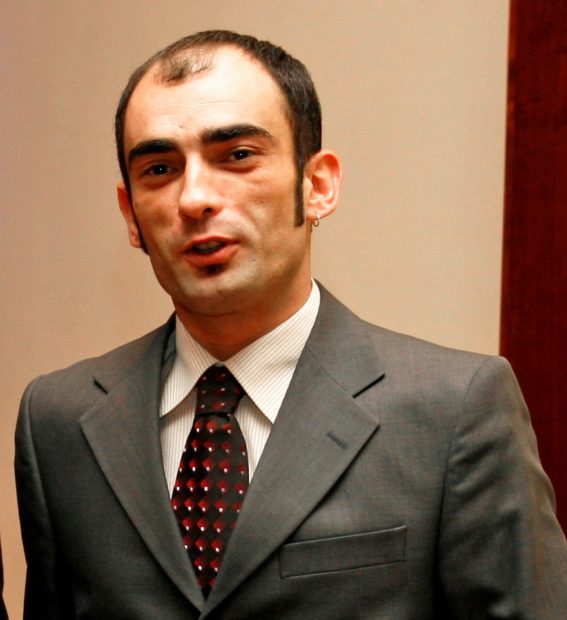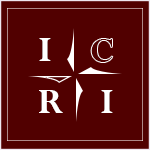
Gjorgji Kalinski is experienced analyst and professional in strategic management in culture and cultural diplomacy, as well as protection, conservation and presentation of cultural heritage. He has considerable experience in international project management within the fields of culture and international relations. He worked for number of years in the National Conservation Centre of Cultural Heritage of Macedonia (NKC), where he focused on projects fostering international cooperation in the field. Attended several workshops on arts and cultural management (ENCATC/Utrecht School of the Arts, the Netherlands), and gave several presentations at thematic conferences concerning contextual heritage conceptualization (European Science Foundation (ESF)/National Gallery of Slovenia, Ljubljana; University of Wales, Swansea/Institute of Historical Research, London; University of Lund, Sweden). He holds a BA degree in Journalism from the University of St. Cyrus and Methodius in Skopje, and MSc degree in Cultural Policy (majoring political science) from the University of Jyväskylä, Finland. His Master’s thesis is titled: Strategic Partnerships: En-route to anticipated heritage and the neo-liberal conceptualizations.
Cultural Diplomacy – Instrumenting and Communicating the Foreign Policy of Post 9/11
What is to become aware of, when it comes to international political relations nowadays, are the requirements towards increasing such capacities that will essentially consider a scope of varieties, greatly emphasized as a new qualitative element in practicing the foreign policy; and that is the understanding of cultural differences and characteristics. Constituents, being vastly underestimated by the traditional scholastic community and practitioners, of this in many regards a competence of noble attributes. The notion of being a diplomat nowadays, surely exceeds such elitist fragmentation, and converts the traditional axiom into a practical mess, barely ever compatible with the reality of post 9/11 era. Trapped within the perceptive memory of the national romanticism, the traditional societies directly experience the inconsistency manifested in an age of global proximity and technological advancement. In this sense, the culture as well, at its broadest meaning, is experiencing an ongoing divergent process of re-positioning its significance within the social reality, or if it sounds better, within the art of instrumenting and communicating the foreign policy. The Cultural Diplomacy therefore, is supposed to be entirely understood as a narrative exceeding its linguistic nature, concentrating upon mutually unprejudiced interpretation and understanding of the daily routine, the one that undoubtedly dominates our lives and shapes the profile of our cultural identity. In context of Public Diplomacy, it is a new form of communicating the national interest(s) to the rest of the world.
Coming across, understanding and complying in accordance with the cultural essence when it comes to practicing the foreign policy, is very often failed to be acknowledged. Even in most cases where it has been given a substantial amount of thought, the practice on the contrary introduces a weak strategic base, followed by mostly ad hoc solutions. In absence of clearly defined sub-agendas, specifically addressing cultural issues, and accordingly, complying with the overall objectives of the foreign policy, the outcome is very likely to be easily guessed. Furthermore, the overall inaccuracy in notion by the academic environment for the need of a rather radical alteration in the course of the discipline is likely to further delay the process of capacity building for reinventing a strong instrumental base that will help more easily their implementation. The Cultural Diplomacy, as an evolutionary discipline (and in notion of practicing the foreign policy), is essentially in need to be acclaimed as an extracted and enhanced level of the public diplomacy, along with its most traditional contemplates. Based entirely upon the archaic ideas of the nation state, the public diplomacy nowadays is in great discrepancy with the reality of post 9/11. It is not a case that such element(s) should be entirely abandoned, even if our multicultural reality strongly portraits the crisis in our collective mental code, and consequently within our cultural identity. Differing the predominant traditional notions and being corresponsive to the reality of the 21 century, is not an option but a must, if our world is to be a more harmonious place to live. Such idealistic position, in an age of global proximity, is fundamentally an integral part of the ongoing process of human development. Acknowledging and learning to bring the colorful assortment out of our collectiveness the best possible way, is something as noble as the technical conception of being a diplomat.
Following the logical order of the phenomenon, the line of reasoning is in need to concentrate upon such actions that will qualitatively expand, seemingly one of the most exploited term within the area of political science, and in particular the foreign policy and diplomacy – “a national interest”. What is hence the priority of the Cultural Diplomacy, regarding the national interest(s)? Such ambiguous question could have many answers. Depending on the situation, and having in mind the variety of answers offered on the term “national interest”, one could fully dialectically reverse the question into such construction that will inevitably portray the political expressionism of our time as a substantial play tool for discourse creation. “What could be qualified as national interest(s) concerning the Cultural Diplomacy?” is likely prerogative to be looked upon here. The one, which emphasizes the need for a greater level of constructiveness when it comes to discourse proliferation and utilization. In addition, expanding the meaning of the term “national interest” will prospectively mean further relativization from its basic and rather strongly practiced ideological structure. Principally, and depending on particular situation, the term is in great need of gaining a greater level of variability, which is nowadays almost entirely dependent on the mood of the public opinion.
The Cultural Diplomacy therefore, is not a question of its “being or not” but how to best channel and manage the fluxes within our multicultural reality. More specifically, and in context of communicating the foreign policy, it is about being aware for the need of developing rather unconventional instruments of telling “our true story, and desires” to the specific environment in question. It is about translating the complex whole of expandable everyday routines, artistic tendencies, scientific practice, leisure styles, etc. Striving for creation of converging, instead of conflicting points anticipates much more than a pale performance of the canonized modus operandi. The new reality is simply not consistent with the personalized, self-reflecting, and unproductive diplomatic stance. Being nothing more but an inherited legacy of the times when democracy was qualitatively on a lower level than it is nowadays, and where the technology was associated by the steam-machine primarily, the current sketchy diplomatic iconography is in great need to overcome itself and offer a sustainable proliferation of newly, socially integrative profiles, rather than the elitist ones. It surely involves a greater interaction, along with mutual understanding and respect, for the benefit of the divergent nature of the relationship in question.
The unconventionality is to be primarily looked upon, but surely not being limited to the artistic, or let us better say creative expressionism of the new diplomat. Another important element for consideration is the cosmopolitan stance, in addition to the much conducive patriotism. Two elements, which at first sight seem to be quite incompatible and confronting in their character. However, such simplistically derived antagonism is not necessarily a mode of conduct regarding the foreign policy. Instead, there is a great need to work out the perfect balance between these two. Constructing an optimal output, which can meet more closely the requirements of post 9/11, is essentially a matter of crating a diplomatic environment of well-trained and adaptive individuals, with highly consumable aspirations in educational sense. In addition to that, the classical, institutional modes of education are simply not enough, as they alone generate the less desired elitist attitudes, which are most often in great disparity with the social reality in question. Sooner it is acknowledged, better the chances will be to create a core of professionals, consistent and productive in their work but most importantly, capable of defining the aims of foreign policy, as well as making it immune to associations of daily political nature.
Above the two mentioned elements, one has to accept the need of constant enhancement of democratic processes on either macro or micro level. Democratization within the practice of foreign policy would hence understand demystification of canonized modes and their constant questioning. Somehow, it links the paradigm to the idea of fostering the human development. A rather vaguely imposed conception of what could be possibly considered as human development. However, it is not a matter of defining and establishing absolute truths, but rather acknowledging the need for animation of our cultural credo and keeping it fit and active. The willingness to initiate such process, along with the affinity to resourcefully manage it, in context of communicating the foreign policy, is as fundamental as having the very same foreign policy itself of whatever attributes. In this, and naturally in a broader context, “the culture has a lasting impact on how societies evolve. But culture does not have to be destiny[1]”.
In an era of global proximity and economy based primarily on knowledge as a principal resource, the Cultural Diplomacy needs to be finally institutionalized and given the attention it deserves. Such process will definitely require additional financial contribution from central instances, but even more importantly, a human potential that will effectively carry out the tasks and challenges of our time. It would be irrationally therefore, to further underestimate the power of culture when it comes to building the international relations. Such bad examples are numerous, resulting in a lack of capacity to anticipate the complex needs of present-day diplomacy. As a result, there is a fertile plot for further cultivation of negative stereotypes, preventing us from the search of critical understanding and dialogue.
The profile of the new core of professionals of public diplomacy, who will be ready to engage into the dynamic field of cultural expressionism, is therefore essentially proliferated among specialists with distinctive expertise in aesthetic and humanistic dimensions. Proven in their fields, these groups of people are likely to stand as strong pillars, providing effective link to various intellectual and artistic forums, influential enough in shaping the public opinion of the particular environment in question.
At the end, let us hope that the Huntington’s “prophesy” would not prevail. Surely, the evolutionary thought had gone quite far since the days of national romanticism. Torn between the reality and the legacy of its own existence, the European intellectual elite, is still trapped in its own indetermination and inefficacy, of portraying its future role of discourse creation. The skepticism and absence of productive political thought, accompanying our turbulent reality, is more than ever evident. It is sad to acknowledge that the level of relevant political agendas concerning the incorporation of cultural values within practice of public diplomacy is still in its infancy…
more…
[1] “The True Clash of Civilizations”, by Ronald Inglehart and Pippa Norris, Foreign Policy 2003.
